Kenya’s waste pioneers
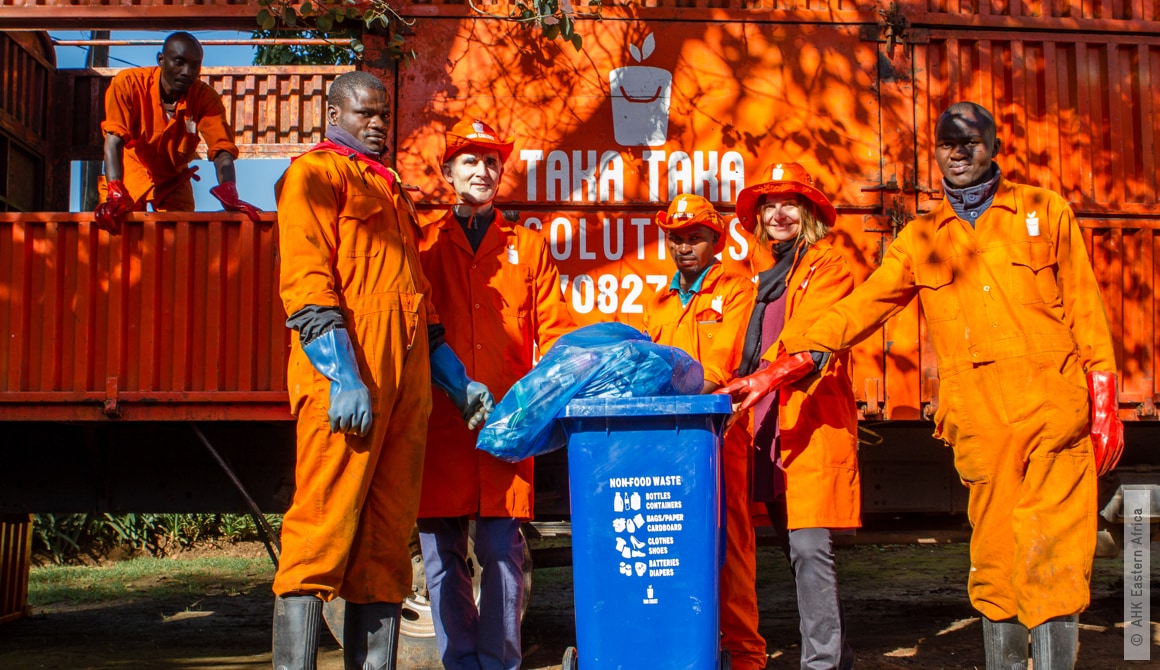
The recycling enterprise TakaTaka Solutions is a model for sustainable waste management in Kenya’s capital city. It was advised by an expert from GIZ.
When TakaTaka Solutions’ orange trucks drive through Nairobi, it is not apparent at first glance that waste pioneers are out and about in the city. Takataka is Swahili for waste. More than 4,000 tonnes of waste are generated every day in Kenya’s bustling capital, where seven million people live in the Nairobi metropolitan region. Many burn their waste, leave it lying at the roadside or throw it into the nearest river – often with serious consequences for the environment and people’s health. Resources for a properly functioning waste management system are in short supply, as is the requisite expertise.
The small number of refuse trucks in Nairobi collect waste and take it to landfills, which continue to grow and grow. TakaTaka Solutions has taken a new approach, and over the past eight years has developed a recycling management system. Andreas Kaiser supported the company during this process. Until the end of 2018, he worked as an integrated expert with the German Chamber of Commerce Abroad (AHK) in Nairobi, after being placed there via GIZ’s ExperTS programme.
95 per cent of the waste is recycled
In Kenya, Andreas Kaiser expanded the AHK’s Competence Centre Energy and Environment as the central contact point for German and European suppliers of sustainable technology and know-how. One of the priority areas for his work was waste management. Together with his team, he established networks between European and East African cooperation partners and business partners, and put companies in touch with German and European development cooperation projects. He also published sector-specific knowledge in market studies and organised a large number of events that focused on environmentally friendly economic growth, including for various German federal ministries.
‘You won’t find the TakaTaka Solutions business model anywhere else between Cairo and South Africa – with a recycling rate of 95 per cent of the waste it collects,’ says Kaiser. He advised the company and its founder Daniel Paffenholz, who has German roots. He also introduced TakaTaka Solutions to potential clients at a number of events. Thanks to the contacts that were arranged, since 2017 the company has been able to process about 50 tonnes more waste each month than before, an increase of some five per cent. This is equivalent to a reduction of around 84,000 tonnes of greenhouse gases per year, taking account of the savings in emissions, energy and resources.
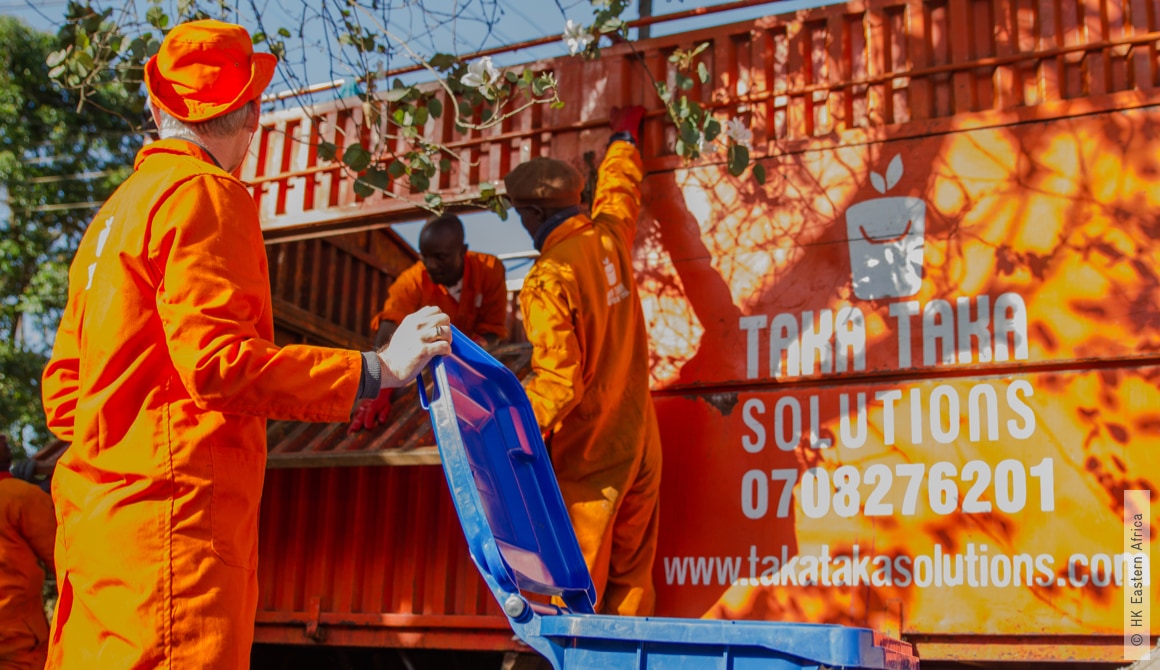
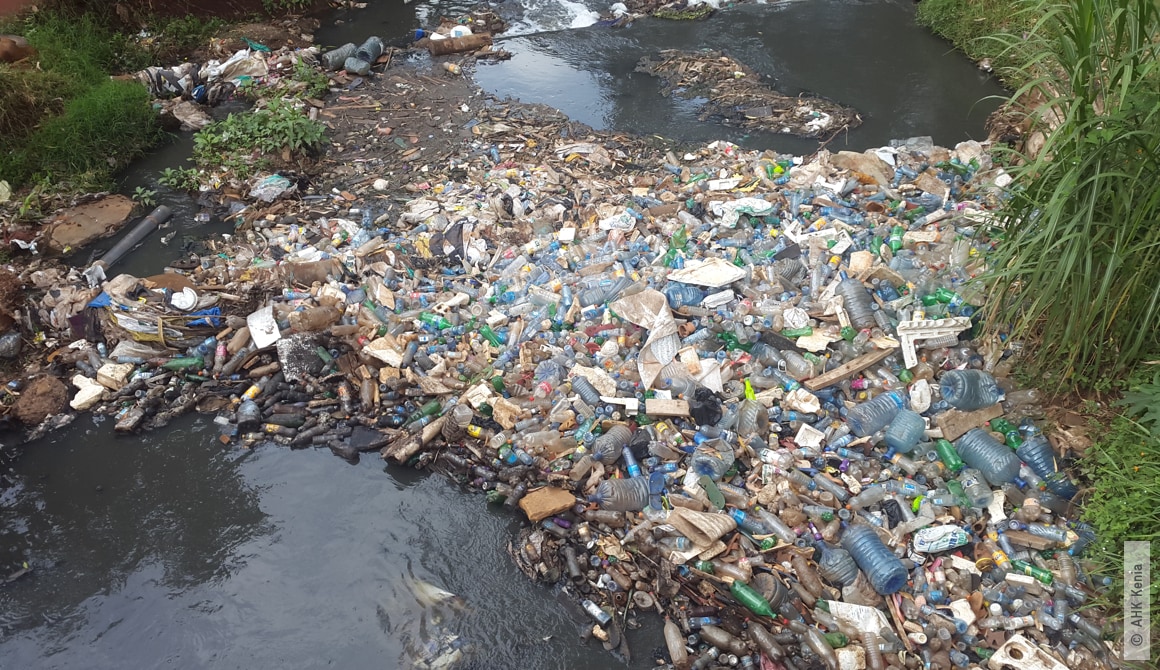
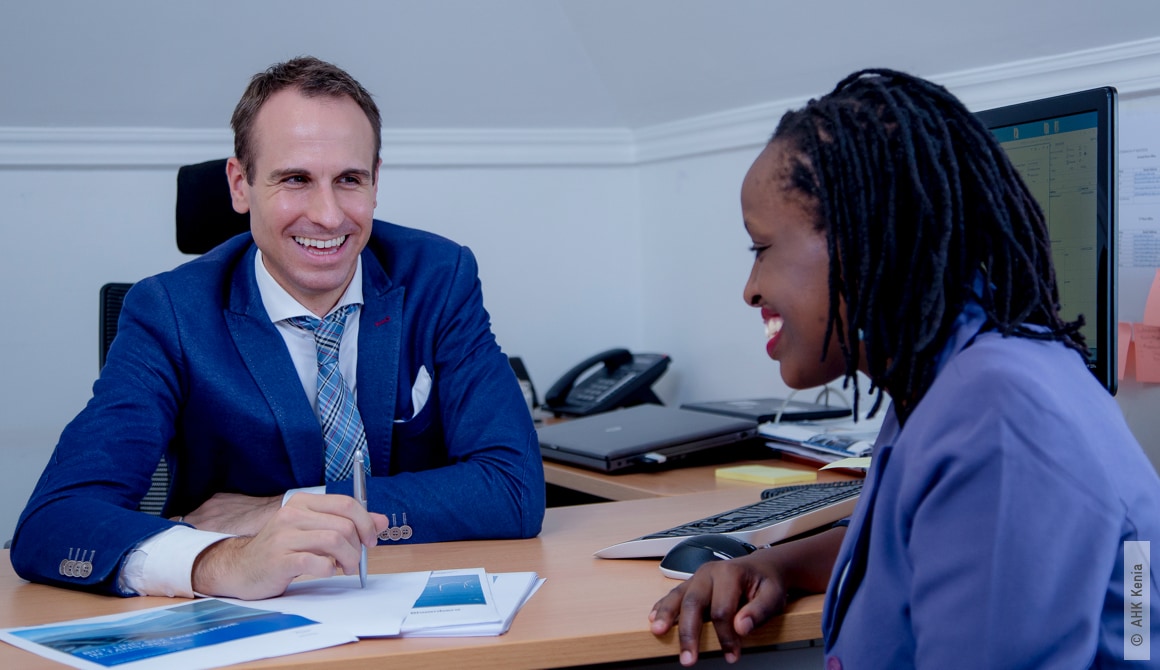
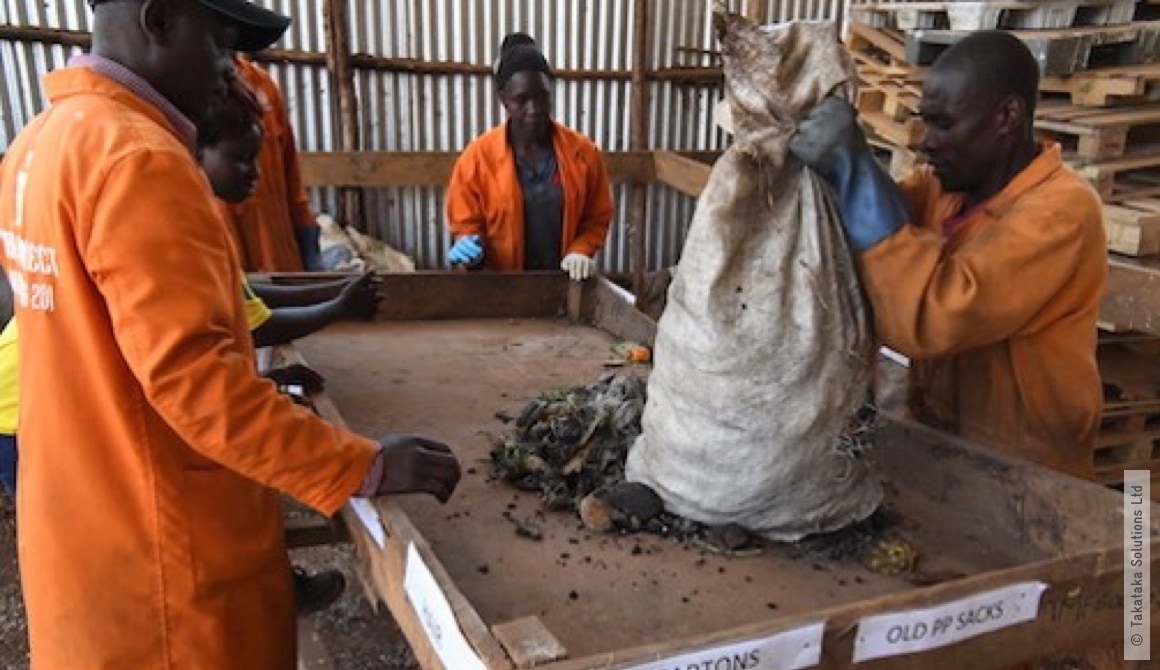
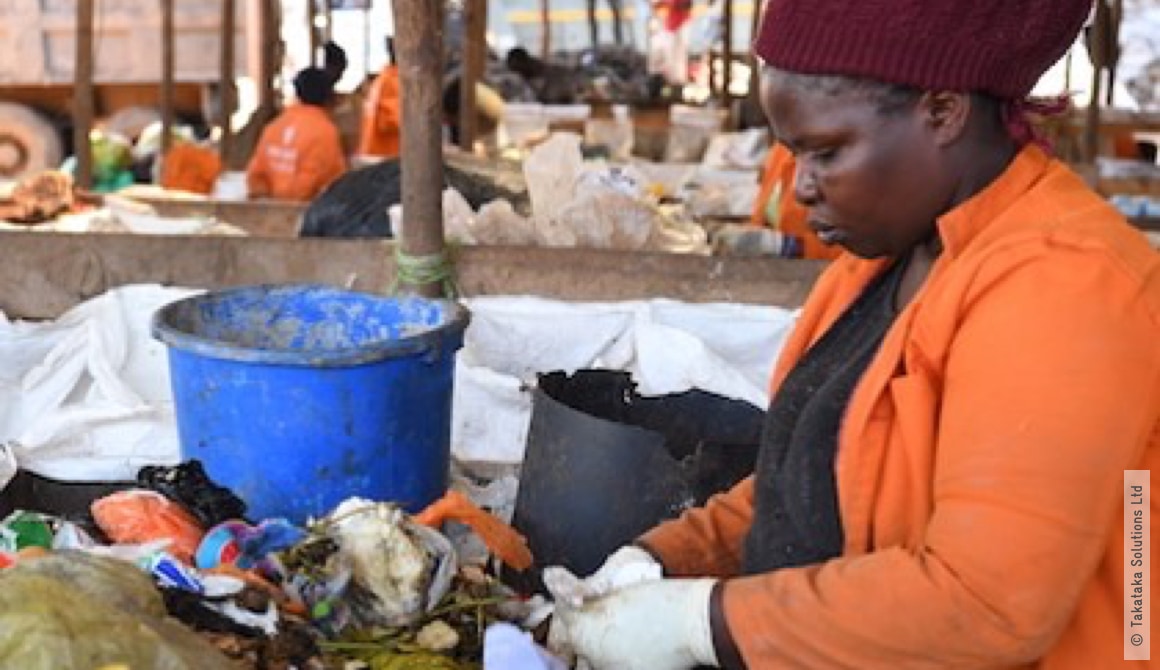
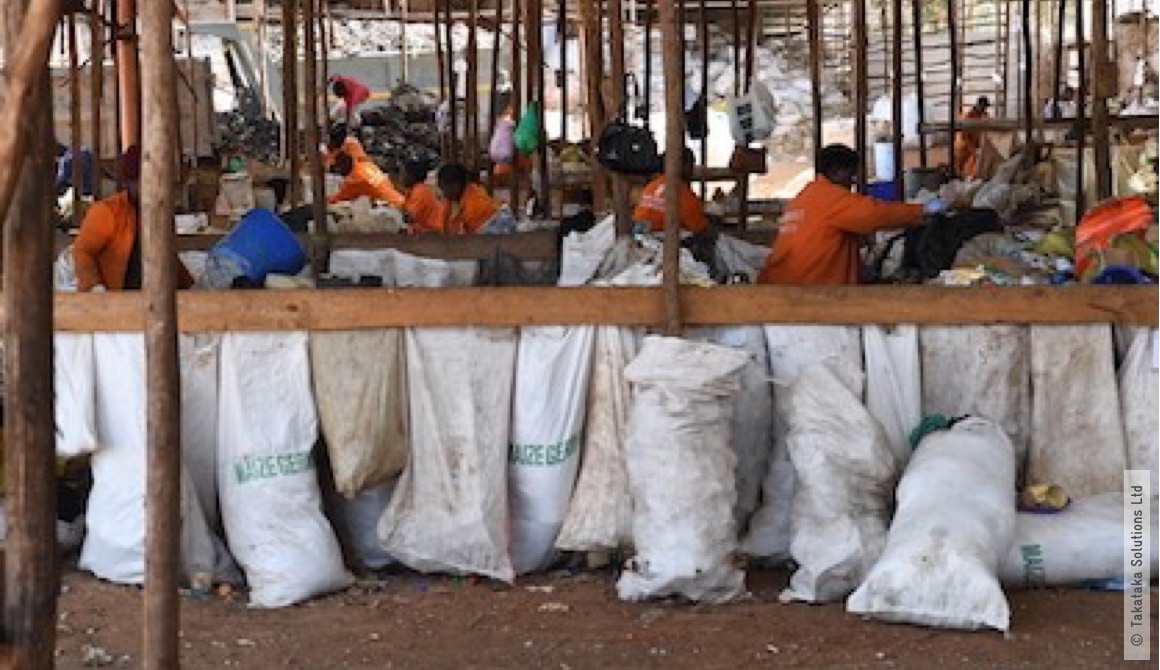
Organic waste turned into compost
The company now employs more than 200 people. In the sorting hall, most of the workers are women, sorting the waste into different sacks: paper, plastic, metal or glass. About 40 tonnes of waste arrive here every day. Organic waste accounts for more than half of the total. Roughly 10 per cent of this waste is bought by pig breeders, while 90 per cent is composted, and ultimately sold to farmers as organic fertiliser. Company founder Paffenholz and GIZ expert Kaiser are convinced of the benefits of a circular economy: TakaTaka Solutions is able to demonstrate how the adverse environmental impacts of growing metropolises can be curbed.
About the ExperTS programme
The programme is funded by the German Development Ministry and is implemented by GIZ together with the German Chambers of Commerce Abroad and Delegations of German Industry and Commerce. Experts placed by the Centre for International Migration and Development (CIM) advise German, European and local companies on development policy matters in around 30 developing countries and emerging economies across the globe. One of the programme’s priority areas is energy and the environment. In 2018, the programme was involved in 44 cooperation projects worldwide, and over 2,100 people were supported with individual advice.